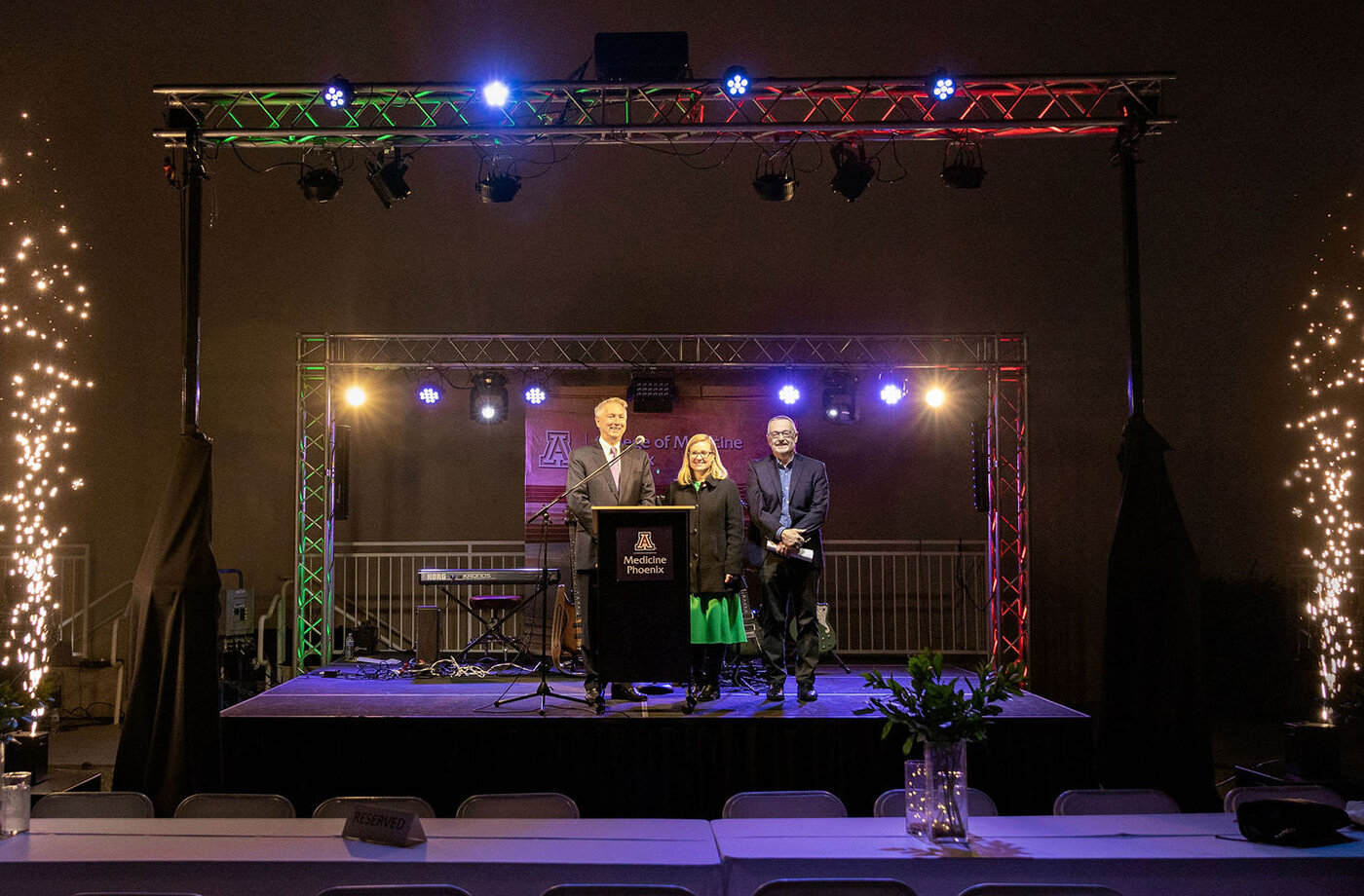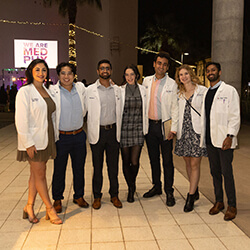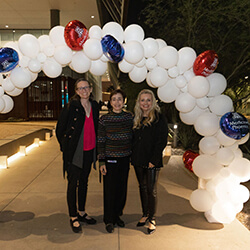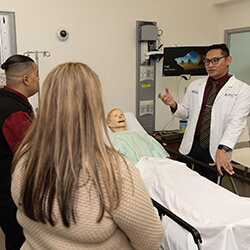
College Celebrates the 10th Anniversary of its Accreditation in Style


The event, which featured remarks from Dean Guy Reed, MD, MS, Phoenix Mayor Kate Gallego and Executive Director of the Phoenix Bioscience Core, David Krietor, honored the hard work and dedication of the faculty, staff and students who have helped the college live up to its mission over the last 10 years.
“This is really the 10-year anniversary of the existence of the University of Arizona College of Medicine – Phoenix, which in 2012, changed from a satellite campus of the College of Medicine – Tucson to a unique medical school with an innovative, personalized medical education that prepares exceptional physicians, scientists and leaders to improve the health of our communities,” said Dean Reed.
Dean Reed also detailed six key achievements that have helped shape the college’s identity since its inception:
- The continued growth of the groundbreaking medical education and curriculum that draws 60 – 80 student applicants for every class slot each admissions cycle.
- The expansion of the class size by 50 percent to 120 students per year — helping to alleviate the pressing physician shortage facing the state.
- The advancement of faculty in the academic ranks to professor with national recognition, national research awards, leadership positions, citations, with scores of patents and thousands of publications.
- The recruitment of numerous renowned chairs to lead premier clinical programs in specialties such as orthopedics, heart failure and heart transplantation, psychiatry, and obstetrics and gynecology.
- The development of world class research programs — such as the Translational Cardiovascular Research Center and Neurotrauma and Social Impact — to address the diseases and conditions that affect so many across Arizona and the country.
- And the launch of four new translational research programs with distinguished leaders and teams designed to discover new therapies for the most dire and significant health issues.

Mayor Gallego highlighted the importance of medical discovery. “Tonight, we have the opportunity to see examples of translational research that are changing patients’ lives. This work not only advances our understanding and treatment of disease, it serves as an economic engine as new technologies and therapeutics developed here in Phoenix are introduced to national and even global markets,” she said.
Mayor Gallego didn’t need to look far for an example of how life changing novel medical treatments are to patients and their families. She described how the care provided to her mother after her cancer diagnosis prolonged her life, granting her mother several more years of precious memories with her grandchild.
After the remarks, guests were invited to experience innovation through an array of interactive exhibits that highlighted the college’s state-of-the-art educational and research facilities, as well as the incredible clinical services provided by some of the college’s faculty.

Attendees could visit the Center for Simulation and Innovation to witness the hands-on training the medical students receive. They could also tour the Center for Applied NanoBioscience and Medicine to view the center’s latest innovations; don an Oculus VR headset to observe six virtual reality experiences used in medicine; interact with the college’s Women in Medicine and Science, a group of female faculty whose research is driving discovery in a number of disciplines; or hear the story of a cardiology patient whose life was forever altered by a revolutionary procedure, cardioneural ablation, performed by Roderick Tung, MD, chief of the Division of Cardiology.
The Community Ball punctuated a week’s worth of events on campus to thank those who’ve contributed to the college’s success. These included a trivia challenge, a “Mad Skillz” competition in the Center for Simulation and Innovation, a lunch and learn with U of A’s FORGE, poetry readings, Food Truck Friday and the Inaugural Innovate Medicine Alumni Summit.
About the College
Founded in 2007, the University of Arizona College of Medicine – Phoenix inspires and trains exemplary physicians, scientists and leaders to advance its core missions in education, research, clinical care and service to communities across Arizona. The college’s strength lies in our collaborations and partnerships with clinical affiliates, community organizations and industry sponsors. With our primary affiliate, Banner Health, we are recognized as the premier academic medical center in Phoenix. As an anchor institution of the Phoenix Bioscience Core, the college is home to signature research programs in neurosciences, cardiopulmonary diseases, immunology, informatics and metabolism. These focus areas uniquely position us to drive biomedical research and bolster economic development in the region.
As an urban institution with strong roots in rural and tribal health, the college has graduated more than 1,000 physicians and matriculates 130 students each year. Greater than 60% of matriculating students are from Arizona and many continue training at our GME sponsored residency programs, ultimately pursuing local academic and community-based opportunities. While our traditional four-year program continues to thrive, we will launch our recently approved accelerated three-year medical student curriculum with exclusive focus on primary care. This program is designed to further enhance workforce retention needs across Arizona.
The college has embarked on our strategic plan for 2025 to 2030. Learn more.